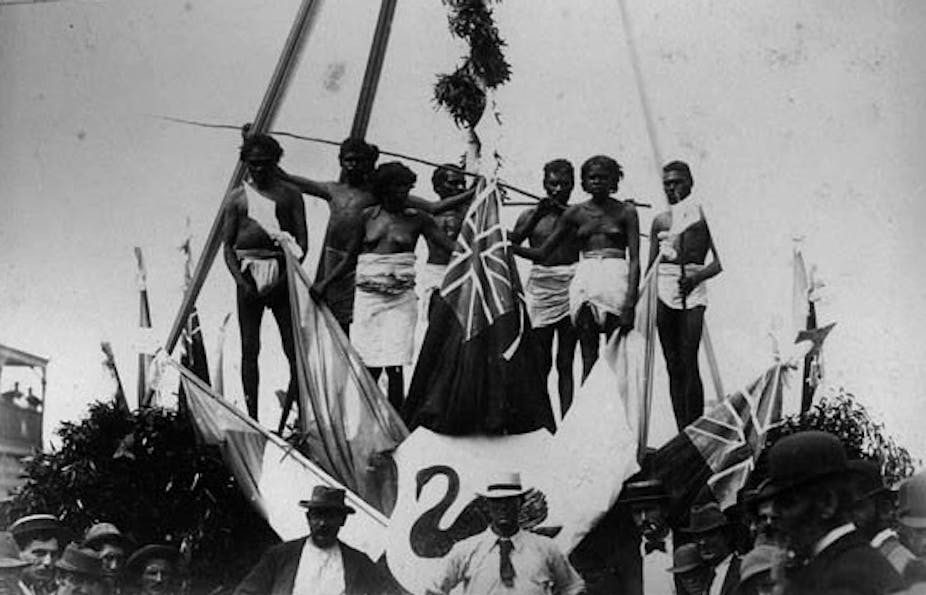The push is currently on for Australia’s national curriculum to place more emphasis on the history of Western civilisation and its values.
But if we accept that the purpose of such an education is to achieve a proper and fuller appreciation of this legacy and its role in the making of the modern world (and Australia), we cannot ignore the many significant elements of its dark side.
Core values
It is commonplace to hear that Judeo-Christian values are the core of Western civilisation. But, ironically, destroying Jewish religious idols was key to historical anti-Semitism in Christian European societies. Jews were accused of various kinds of conspiracies and evil designs.
In recent years, this part of Jewish-Christian history is glossed over in favour of claims that anti-Semitism is unique to Islamic societies. But according to eminent historian Bernard Lewis, Jewish and Muslim strands of theology are far closer to each other than either is to Christianity.
Jews lived under Islamic rule for 1400 years and in many lands. While they were never free from discrimination, Jews were rarely subjected to the persecutions and violent massacres they were in Christian societies.
Colonialism
Colonialism was a brutal historical event. It was unleashed in the 18th century by a number of European countries to reorganise the world for capitalist exploitation and political and cultural domination.
Colonialism was a disgraceful robbery of land and resources from large segments of the human population to satisfy the colonising imperial powers’ incessant greed. As the African saying goes:
When white man came we had the land, they had the Bible. Now we have the Bible and they have the land.
The incorporation of colonies into economies of metropolitan countries required the destruction of indigenous economies and subjugation of the natives through military coercion and destruction of local cultures. Never before have so many societies and cultures been subjected to such oppressive racist exploitation and humiliation.
Genocide
Colonialism began in the context of the largest human movement in history, involving millions of Europeans, Chinese and Indians migrating to new lands in Africa, the Americas and Australasia. New countries were established on lands taken forcibly from their indigenous inhabitants who were systematically displaced or destroyed.
Within a century and half of British occupation, Australia’s indigenous population declined by 80% due to diseases, repression and violence. In the US, the native population declined by 95% within two centuries of European occupation.
The same type of destruction was repeated in African and South American colonies.
Global inequalities
The destiny of nations is shaped by demography and geography. Colonialism led to huge distortions in favour of the English-speaking world.
Consider the countries that trace their lineage to Britain: United States, Canada, Australia and New Zealand. Together they have 5.5% of the world’s population and 19% of earth’s land mass.
In comparison, China and India have 38% of the world’s population and 8% of earth’s land mass.
These disparities have worked to the great economic advantage of these countries. It has given them exclusive access to huge mineral, agriculture and other vital resources of the land they occupy. This has primarily been for the benefit of their comparatively small populations, exacerbating global economic inequalities.
Exclusion of natives and migrants
The inequalities were created through insidious claims that new colonies were “white man’s countries”, which excluded the “non-whites” and indigenous population from citizenship.
The indigenous people and “non-whites” could only work as indentured labourers, servants and slaves. They had no legal rights to permanent residency and ownership of land and economic resources. Laws were enacted to deny the natives such rights and to expel non-white workers, or to exclude them from entering the colonies.
Democracy and exclusion
The new British colonies prided themselves on sharing the democratic politics and institutions of English-speaking cultures.They endowed upon themselves distinctive capacities for self-government and democracy, which could only survive in the absence of distinctions of class and colour.
Such ideological prerequisites for democracy made conditions of racial homogeneity imperative and led to large-scale ethnic cleansing. The notion of the people so crucial to democratic rule was defined in ethnic terms. The establishment of European colonies made previously less diverse societies more diverse.
In such conditions, politically and militarily dominant groups conflated ethnic identity with national identity, conferring upon themselves all the benefits and rights to the exclusion and subjugation, often through violent means, of rivals. Restrictions on immigration sought to forge racial homogeneity.
Anti-white immigration policies have gradually been either abolished or radically changed in these countries, but immigration still remains one of the most emotionally charged political issues in them.
The Abbott government’s obsession with Australia’s border protection, demonising and criminalising asylum seekers and refugees, is one such contemporary illustration. Ironically, it is happening in a country whose very foundation was laid by illegal immigration and the brutal dispossession of its indigenous population.
Militarism
Militarism is another legacy of the colonial expansion and its successor states. In 2012, the military spending of the United States, Australia, Canada, the UK and New Zealand amounted to US$794 billion or 46% of total global military spending, with the US accounting for 40%. By comparison, China and India’s accounted for 9.5% and 2.6% respectively of global military spending.
Military spending will increase in the coming years given the emerging superpower rivalry between China and the US. This will make the world less safe, as well as consuming resources which could more usefully be employed to address global and national inequalities.

